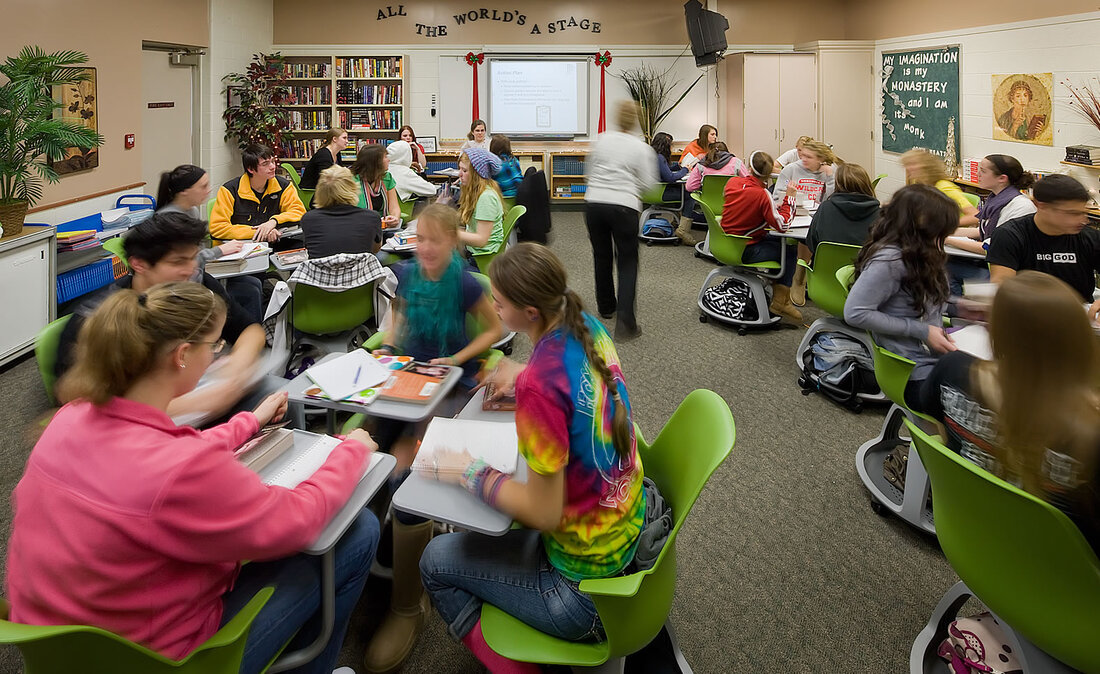KEY SESSIONS IN SCHOOLS
THE ROLE OF THE MIDDLE LEADER IN THE POST PRIMARY SCHOOL
Since the introduction of Circular 0003/2018, the middle leadership landscape has changed significantly in schools with the introduction of AP1 and AP2 post holder roles. Post holders play a key role in leading school development. This in-school workshop with middle leadership teams helps middle leaders to reflect on their current role and refine their vision for the future. Practical elements include: leading teams, managing meetings and planning for school development. Sessions can be organised flexibly to minimise disruption to the school timetable.
|
PROMOTING POSITIVE BEHAVIOUR MANAGEMENT FOR TEACHERS
Effective classroom management is an essential element of any teacher's practice. This workshop offers teachers an opportunity to reflect on their response to the challenging behaviour that they encounter daily. It presents a range of practical strategies that teachers can apply in their classrooms to minimise disruption to learning and to help create a positive classroom climate where student learning can flourish.
Whilst this session is usually offered as a whole staff session it can also form part of a school's induction programme for newly appointed teachers. |
THE ROLE OF THE YEAR HEAD - TOWARDS A TEAM APPROACH
The year head is universally recognised as a key leader in the modern school. However, many year heads have expressed concerns about defining the role and interpreting its boundaries.
This in-school session helps year heads to reflect on their role, begin to define a vision for the year head team and explore a range of strategies to support them in their role. The session :
|
THE ROLE OF THE CLASS TUTOR
Many post primary teachers perform the voluntary role of class tutor. The role offers an opportunity for teachers to build a positive and rewarding relationship with their tutor class and enhance the positive spirit in the school. The role is underdeveloped in many schools.
This session helps class tutors to define a vision for their role and explore a range of strategies to support them in their day to day engagement with their tutor class. It also offers an opportunity to engage in professional dialogue with colleagues to help build a common vision for the role in their school. |
ASSESSMENT FOR LEARNING
Assessment has always played a central role in the Irish Education system, particularly from the perspective of measuring achievement.
However, assessment is also central to raising achievement through improved learning. Assessment for learning (AfL) places value on encouraging students to be more engaged in their learning. This session l examines how assessment may be used to enhance teaching and learning in the classroom. It outlines the 5 key strands of AfL with a particular emphasis on offering teachers practical strategies that they can implement in their classrooms. |
TEAM TEACHING
With recent trends towards greater inclusivity of all learners, team teaching is being adopted as an effective in-school intervention to support effective learning in the post primary classroom.
This session includes:
|
ACTIVE LEARNING / TEACHING METHODOLOGIES
Our students differ in many ways and thus learn in different ways. Research has shown that many young people learn best by doing. The challenge for teachers can sometimes be to vary their methodologies to respond to the needs of these students.
This session offer teachers an opportunity to reflect on the active methodologies they already employ and explore some practical active strategies that will help them support the learning of the many kinaesthetic learners they encounter in their classrooms every day. |
DIFFERENTIATION IN THE MIXED ABILITY CLASSROOM
One of the great joys of teaching is the fact that our students differ in so many ways.
However this can present a challenge to teachers who have a crowded curriculum to complete with these diverse class groups. This session offers teachers an opportunity to reflect on how they already differentiate and explore some practical classroom strategies that will help them support the learning of both the exceptionally able students and struggling learners in their classrooms. |
TEACHER LEADERSHIP IN THE POST PRIMARY SCHOOL
In recent years, schools have continued to become more complex places in which to teach and work. New initiatives abound and teachers’ commitment to their students and their schools has contributed in no small way to this ongoing school development.
All teachers in every school have a leadership role to play in introducing and implementing improvement. This in-school whole staff workshop will help all teachers to reflect on their current roles and refine their vision for the future. Practical elements will include: leading teams, managing meetings and planning for school development. |










